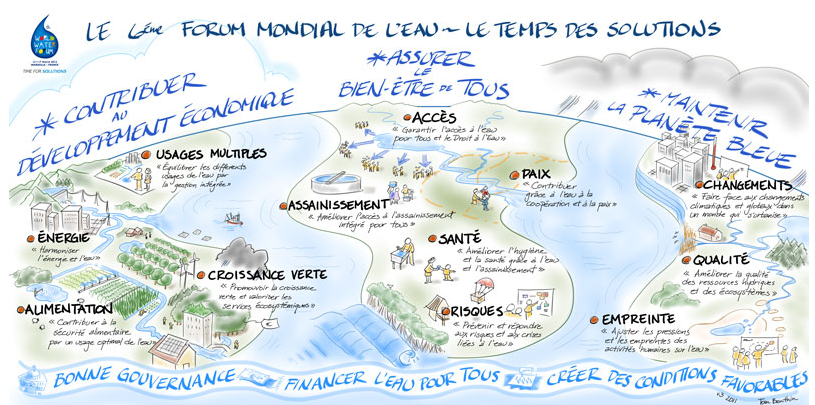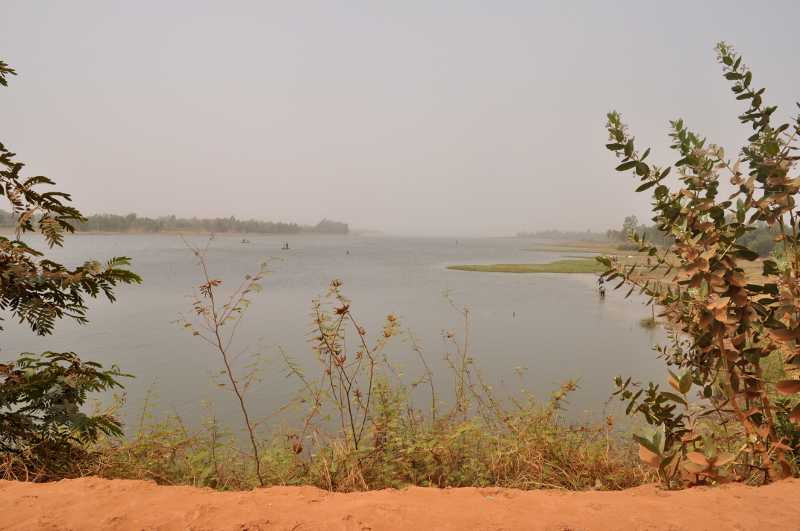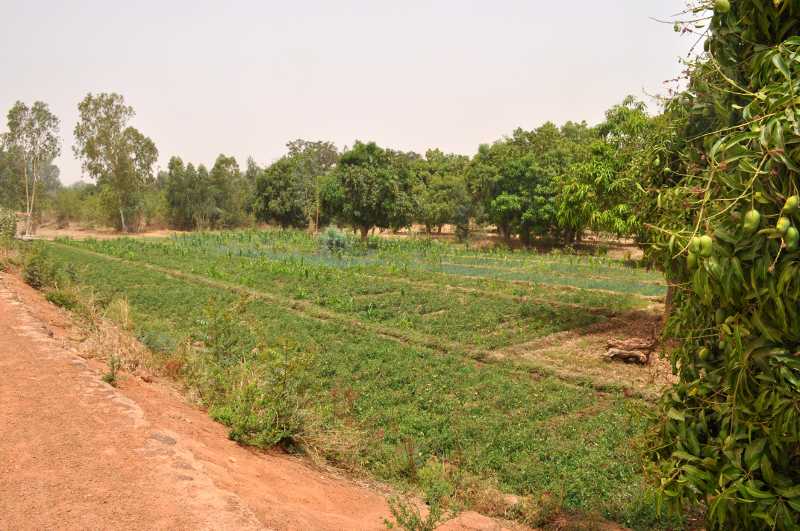Building a dam is not enough to provide access to water!
The 6th World Water Forum took place in Marseille in France Monday 12th to Friday 17th of March. On the opening day Loîc Fauchon, President of World Water Council, made a heartfelt address. He had attended the first World Water Forum in Marrakech fifteen years earlier. What a long way we have come. And what a long way we yet need to go, to overcome the lack of water, this ”leprosy of modern times”, as he put it.

 In a speech filled with convictions often expressed but standing out as even more poignant in the present circumstances, Loïc Fauchon gravely professed ”It is the same with water as with freedom: What use is it to have the right to vote, if you do not have the right to live? And the right to live is first and foremost the right to water!”
In a speech filled with convictions often expressed but standing out as even more poignant in the present circumstances, Loïc Fauchon gravely professed ”It is the same with water as with freedom: What use is it to have the right to vote, if you do not have the right to live? And the right to live is first and foremost the right to water!”
It so happens that today, on Saturday the 18th of March, one day after the end of the Forum, I was in Koubry, about 30 km south of Ouagadougou, invited by a village association. The men and women of the association had not heard about the World Forum. But very soon the issue of water and the lack of access to water came into our discussion. The daily life of these peasants deserves to be known.
The paradox is that water is fairly abundant in this region. Koubry village is in fact home to a Benedictine monastery since many years. One of the monks, Brother Adrien, has built a number of dams. It is therefore possible to do market gardening in the surrounding area. On a small scale when working manually and on a larger scale if you have a power pump and can hire farm workers.

 Since the area is situated near Ouagadougou, the ”economic operators” (in the local jargon) in the capital could not remain indifferent. The first mayor of Koubry did all he could to avoid their involvement, well aware of the risks to the local population. The present mayor, however, has encouraged peasants to hand over their land ”to make better use of its value”.
Since the area is situated near Ouagadougou, the ”economic operators” (in the local jargon) in the capital could not remain indifferent. The first mayor of Koubry did all he could to avoid their involvement, well aware of the risks to the local population. The present mayor, however, has encouraged peasants to hand over their land ”to make better use of its value”.
Thus, after the meeting, two members of the village association took me to the banks of one of the biggest dams of the region. They pointed out:The dam goes all the way up to the tarmac road (about 10 km from here). Therefore we have no access to this water. We can not even take the animals to drink here …
In order to understand how it is possible to deprive the farmers of access to water in this way, you have to know that in Burkina most farmers do not own the land that they cultivate. Often the land belongs to two or three families, whose ancestors founded the village. Then others came along. They were ”given” land so that they could settle and farm, but are not owners of the land they work on.
What happened in Koubry is what now happens in the Sissili province and is waiting to happen here and there all over Burkina. Land which has not yet been sold, runs the risk of ending up in the hands of the wealthiest, sooner or later. If peasant farmers do not find a way to stop it. We must keep following this story.
Once again we may say: “Yes, it is expensive to be poor!”
Koudougou, March 19th, 2012
Maurice Oudet
Director, SEDELAN









